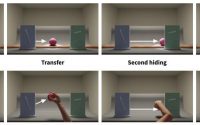Hospital posters remind surgeons to check they have the right patient
NHS hospitals put up posters reminding surgeons to check they have the right patient after a series of operating theatre blunders
- John Radcliffe and Churchill hospitals had mishaps between May and June
- At the Oxford University clinics, surgeons put an endoscopy in the wrong patient
- Medics left a surgical cup in a patient, requiring they go under the knife again
- ‘Never events’ are incidents that would not occur if guidance was followed
- Across England, 181 never events occurred in 2018; higher than past years
12
View
comments
Two NHS hospitals have put up posters in operating rooms reminding surgeons to check they have the right patient.
This comes after the Oxford University John Radcliffe and Churchill hospitals carried out four mishaps between May and June.
These so-called ‘never events’, which are defined as incidents that would not occur if proper guidance was followed, included surgeons inserting an endoscopy camera into the wrong patient.
Another incident saw medics leaving a surgical cup inside a patient, requiring they go under the knife again the same day.
A trust spokeswoman said: ‘These poster reminders are part of a suite of actions to remind staff to thoroughly check a patient’s identity.’


Two NHS hospitals have put up posters in operating rooms reminding surgeons to check they have the right patient after having four mishaps in just two months (stock)
-
 ‘See ya later, suckas! When I die I’m going to be a…
‘See ya later, suckas! When I die I’m going to be a…  Legalizing same-sex marriage improved health for gay men:…
Legalizing same-sex marriage improved health for gay men:…  Saturated fats in yoghurt, cheese and butter do NOT increase…
Saturated fats in yoghurt, cheese and butter do NOT increase…  Smokers are up to 45% more likely to suffer from deadly…
Smokers are up to 45% more likely to suffer from deadly…
Share this article
DOES SURGICAL EQUIPMENT EVER GET LEFT IN PATIENTS’ BODIES? AND WHAT ARE THE RISKS?
Surgical items left in the bodies of patients can cause sepsis and even death.
In less severe cases, people may experience pain, discomfort and bloating.
In the US, up to 6,000 surgical instruments are left inside patients’ bodies every year. Of which, around 70 per cent are sponges and the remainder items such as clamps.
Dr Atul Gawande, a surgeon at Brigham and Women’s Hospital, said: ‘In two-thirds of these cases, there [are] serious consequences.
‘In one case, a small sponge was left inside the brain of a patient that we studied, and the patient ended up having an infection and ultimately died.’
Such mistakes are considered so shockingly bad they are often referred to as ‘never events’, which also covers operating on the wrong patient or part of the body.
In 2004, the Joint Commission, a US-based nonprofit organisation, published the Universal Protocol, which provides guidelines on how to reduce such never events.
These recommendations include ensuring all medical equipment is accounted for at the end of every procedure, however, this can be challenging considering up to 100 sponges may be used in a single major operation.
Errors also often occur in stressful situations, when changes to the operation procedure happen suddenly or if there are a lot of distractions.
Dr Ana McKee, executive vice president and chief medical officer of the Joint Commission, told CNN: ‘If there’s music going on or side conversations or someone is on the phone, that does not meet the spirit of the Universal Protocol.’
Many hospitals in the US have switched to sponges and surgical tools with barcodes on them so they can be electronically tracked.
Mistakes have an ‘inevitable impact’ on the public’s confidence in the NHS
Speaking of the incidents at the Oxford University’s hospitals, the trust’s medical director Tony Berendt said: ‘No clinician in our hospital comes to work to be, in any sense, careless or to cause harm.
‘I know that the teams that have been involved in these events are deeply upset about what has happened.
‘On behalf of those clinicians I would extend my apologies to all patients involved and our public for the inevitable impact on their confidence in our services that these kind of events lead to. We do take them extremely seriously.’
How many never events occur every year?
Across England, 181 never events occurred in 2018 alone, including a patient incorrectly having her ovaries removed.
Other incidents see patients unnecessarily having laser-eye surgery, bowel examinations or overdosing on the wrong medication.
Kate Andrews, news editor at the Institute of Economic Affairs, told The Telegraph: ‘Substantial reform of the system, so it better focused on patient care, would likely reduce the number of “never events” that occur each year.
‘Sadly, with no meaningful plans for reform on the agenda, completely unnecessary – and largely frightening – errors like this continue to occur and are failing to decline.’
Some 467 never events were recorded in England in 2017 compared to 466 the year before.
NHS Improvement’s executive medical director and chief operating officer Dr Kathy McLean argues never events cannot be compared year-on-year due to the definition and policies surrounding such incidents being updated regularly.
Woman had surgical sponges left inside her for up to nine years
This comes after a report released last February suggested surgical sponges were left inside a woman up to nine years after her C-section.
The unnamed woman, 42, believed to be from Chiba in Japan, went to her doctor complaining of bloating that had lasted three years.
A scan revealed two gauze sponges had become attached to her large intestine and the tissue that connects the stomach to other parts of the abdomen.
Scientists believe the sponges were left behind after one of the patient’s two C-sections, which took place nine and six years ago.
Due to the sponges not being attached to her uterus, the patient would have been able to conceive a second time without problems.
Following the removal of the sponges, the patient’s symptoms improved. She was discharged five days after her surgery.
Source: Read Full Article


